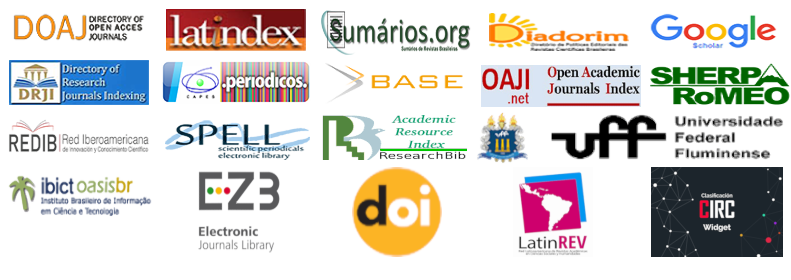About the Journal
GENERAL INFORMATION
The Review of Administration, Society, and Innovation (RASI) is a scientific and technological journal created by the Graduate Program in Administration (PPGA), based at the Institute of Human and Social Sciences (ICHS), a unit of the Universidade Federal Fluminense (UFF). The journal adopts the best editorial practices and follows the recommendations and norms of QUALIS/CAPES and the Manual of Good Practices of the Scientific Publication of ANPAD. Its editorial process is carried out through the digital platform SEER (Electronic Publishing Service of Magazines), to guarantee transparency and free access to readers and authors, favoring the exchange between national and international institutions. In this sense, RASI counts on the collaboration of external ad hoc evaluators, unrelated to its editorial team and the publishing institution, through a double-blind review process.
MISSION
The mission of the RASI is to evaluate and disseminate the scientific and technological production in Administration, with the potential to contribute to the advances of the Brazilian scientific community in the field and also to the community of practice (managers) always observing methodological rigor.
POLICIES
Focus and Scope
RASI publishes scientific and technological articles, cases for teaching and theoretical essays on Administration, Business Management, and Social Sciences. RASI typically publish texts related to:
- Accountability;
- Public administration;
- Accounting and Finance;
- Strategy;
- Entrepreneurship and Innovation;
- Operations Management;
- Risk management;
- Social Management and Social Technologies;
- Project Management;
- Industry 4.0 and Digital Transformation;
- Marketing and Commercialization of Goods and Services;
- Management Software;
- Teaching Cases, Theoretical Essays, among others.
Section Policies
RASI accepts various types of submissions, namely:
1- Scientific Paper
Theoretical-empirical work. This category covers papers that report on any type of research undertaken by the author(s). The research may involve the construction or testing of a model or framework, action research, testing of data, market research or surveys, empirical, scientific, or clinical research.
2- Technological Paper
Work focused on the use of theoretical models as a way to present and unveil knowledge, knowledge, and praxis about organizations. It is important that the submitted paper presents one of the following points:
Focus on innovation: the authors' develops new solutions to new problems;
Focus on improvement: the authors' develops new solutions to known problems;
Focus on extrapolation: the authors' extends known solutions to new problems.
3- Case for Teaching
Although there is no strict and unique structure for Teaching Cases, we recommend that the papers submitted in this section be structured under two broad axes (or parts): the case in question; and teaching notes (essential for their application in the teaching-learning environment).
The structure proposed for the Teaching Case:
- Introduction that exposes the problem situation to be debated;
- Presentation of the case (history itself), with the description and/or profile of the organization and conduction to the problem situation;
- References
Proposed Structure for Teaching Notes:
- Teaching Objective
- Sources and Methods of collection
- Relations with the objectives of a course or discipline
- Disciplines suggested for the use of the case
- Possible tasks and/or issues for implementation
- Possible organization of the class to use the case
- Suggestions for bibliography
4- Theoretical Essay
Work focused on the discussion and development of theories. It should not be confused with "bibliographic review." Necessarily, the theoretical essay must advance about the literature employed, bringing clear contributions to the field of knowledge.
5- Literature Review
Paper with the main objective of identifying, organizing, analyzing, and/or criticizing the literature on a specific topic. It should cover the main contributors to the development of a theme and explore its different views.
Papers with bibliometric analysis techniques are accepted as long as they bring some additional contributions to the studied field. Preferably the construction of an analytical framework, model, or method that can be explored by other authors.
Periodicity
From volume 1 to volume 4 (2015-2018) the Review of Administração, Society and Innovation (RASI) was published every six months. As of volume 5 (January 2019), it started to be published every four months (January 1st, May 1st, and September 1st). Special or extra numbers can be edited without defined frequency. Additionally, the paper approved for publication is available in the "online first" section.
Free Access Policy
RASI offers free access to its content, following the principle that providing free scientific and technological knowledge to the public provides greater global democratization of knowledge.
Policy on the Use of Artificial Intelligence Tools
In May 2023, RASI implemented an editorial policy in which the author(s) must declare, when applicable, the use of artificial intelligence tools.










